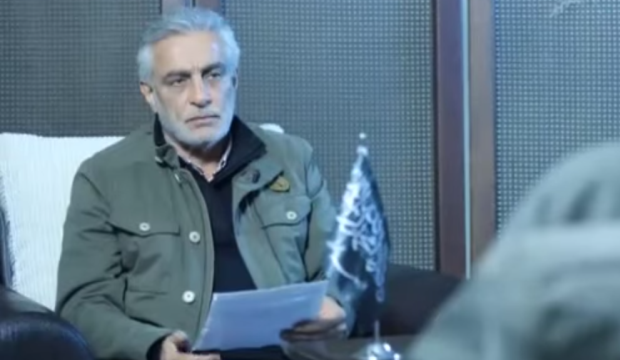Al-Jazeera’s televised interview with Al-Nusra Front leader Abu Mohammad Al-Golani has garnered controversy over whether the media should grant time and space to figures linked with terrorism. However, this is something that has taken place throughout the history of journalism. For example, Western media outlets today continue to scramble to get an interview with Syrian President Bashar Al-Assad, who is responsible for major massacres in the country, so why should we protest an interview with Golani?
The issue is not about media interviews with such figures, but how they are being presented and whether they are being held accountable for their crimes. In Golani’s case, securing an interview with him may have been a scoop, but the content of the interview more closely resembled propaganda than journalism—he was not challenged or asked any difficult questions in the televised interview. This interview was between two people in total harmony. In fact, the questions implied admiration for Golani and his cause, while all his statements were sectarian in nature—despite the calm tone he spoke with and his assurances that the only goal can be to topple Assad.
Golani called on certain groups to abandon their religious convictions. He thinks Alawites must stop being Alawites, and Christians will be fine so long as they pay the jizya (a tax levied on non-Muslims under some versions of Islamic law). This is Al-Nusra Front’s vision of tolerance!
The interview succeeded only in gaining the admiration of all those who consider the Al-Nusra Front—an Al-Qaeda affiliate, no less—to be an acceptable alternative to the Islamic State of Iraq and Syria (ISIS).
The danger of interviews such as this is that embellishing a figure like Golani means deleting the history of the past four years. It is as if there was no revolution in Syria, as if the Syrian people did not take to the streets to demand freedom and dignity. The Golani interview implies that Syria and its people must choose between Assad, Al-Qaeda or ISIS. This is a logic that was adopted by the Assad regime from the start of the revolution that erupted in 2011.
In the past, many interviews have been held with warlords for the sake of promoting or marketing them. This has not been limited to Al-Qaeda and its affiliates, but also to “resistance” movements and regimes. However, with the embellishment of Golani’s image, it seems that terrorism—whether Sunni or Shi’ite—is still the trump card in the region.
During the interview, Golani sought to reassure the West that the Al-Nusra Front poses no real threat. This is precisely what the Middle East’s ruling regimes did all the while, depriving their peoples of freedom. Golani sought to reassure the West, but his reassurances have only created even greater concerns, particularly as there will likely be more such interviews to come.
